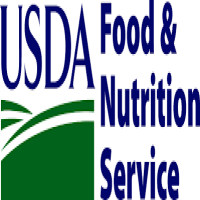States Required To Submit SNAP Beneficiary Data

State and territorial agencies overseeing their Supplemental Nutrition Assistance Program (SNAP) may have to work a little harder going forward to collect and submit certain data on beneficiaries, in light of a recent memo issued by the Department of Agriculture Food and Nutrition Service (FNS).
The memo cites President Trump’s March Executive Order 14243, Stopping Waste, Fraud, and Abuse by Eliminating Information Silos, which requires federal agencies to “take all necessary steps, to the maximum extent consistent with law, to ensure the federal government has unfettered access to comprehensive data from all state programs that receive federal funding, including, as appropriate, data generated by those programs but maintained in third-party databases.” States and territories maintain discrete collections of SNAP application, enrollment, recipient and transaction data.
FNS is working with several SNAP payment processors to consolidate SNAP data. “FNS will use the data it receives from processors to ensure program integrity, including by verifying the eligibility of benefit recipients,” the memo explains. “This is consistent with FNS’s statutory authority and the president’s executive order, and will ensure Americans in need receive assistance, while at the same time safeguarding taxpayer dollars from abuse. Upon completion of its analysis, and to the extent necessary, FNS will follow up with state agencies regarding next steps.”
The agency also is taking steps to require all states to work through their processors to submit at least the following data to FNS, as applicable:
- records sufficient to identify individuals as applicants for, or recipients of, SNAP benefits, including but not limited to personally identifiable information in the form of names, dates of birth, personal addresses used and Social Security numbers; and
- records sufficient to calculate the total dollar value of SNAP benefits received by participants over time, with the ability to filter benefits received by date ranges.
FNS explained that the requested data will cover the period beginning Jan. 1, 2020, through present. The agency warned that failure to grant processor authorizations or to take the steps necessary to provide SNAP data to FNS may trigger noncompliance procedures.
Let’s hope this increased level of data sharing does not create a sizable burden on states and territories managing their SNAP programs.
Join us for our following Thompson Grants event:
Thompson Grants Virtual Workshop: Audits 2025 | July 17, 2025 | Virtual Event



